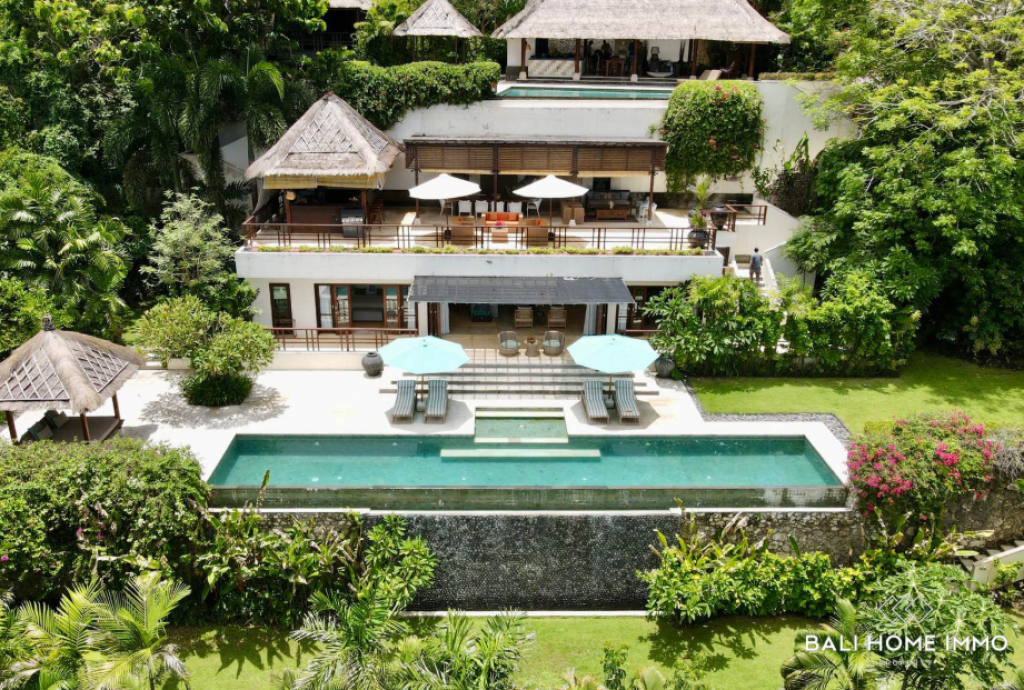
What Are the Legal Requirements for Buying Property in Bali

Bali is a top destination for property investment, but foreign ownership of land is restricted under Indonesian law. Unlike local citizens who can own Hak Milik (freehold), foreigners must use alternative legal structures to acquire property in Bali. Understanding these regulations is essential to ensure a legally secure transaction.
This article outlines the legal ownership options available for foreigners, key requirements, and important considerations, along with real-life study cases to help new investors understand each method.
Legal Ownership Options for Foreigners
1. Freehold (Hak Milik) – NOT Available to Foreigners
Foreigners cannot own Hak Milik (freehold) in Indonesia. This type of land ownership is strictly reserved for Indonesian citizens. Any claim suggesting that foreigners can own freehold property is legally incorrect.
- Only Indonesian citizens can hold Hak Milik
- Foreigners must use leasehold or other legal alternatives
2. Leasehold (Hak Sewa) – Available to Foreigners
A leasehold agreement allows foreigners to lease land or property for a specific period.
Lease Term: Usually 25–30 years, with extension options.
Legal Protection: The lease must be notarized (PPAT) and registered.
Usage: Can be used for residential or commercial purposes, depending on zoning laws.
Tax Obligations for Leasehold:
Withholding Tax: The lessor (property owner) must pay 10% if they have an NPWP (tax ID) or 20% if they do not.
Notary Fee: Typically 1% of the total lease transaction value.
Also read "What is a leasehold vs. freehold property in Bali?" for more information.
3. Right to Use (Hak Pakai) – Available to Foreigners
Hak Pakai is the only title that foreigners can hold individually under Indonesian law.
Validity: 30 years, extendable for 20 + 30 years (maximum 80 years).
Ownership Limit: A foreigner can own only one property under Hak Pakai.
- Requirements: The buyer must have a valid stay permit (KITAS/KITAP).
Example:
David, a retiree from France, wants to buy a villa in Bali for personal use. Since he has a long-term stay permit (KITAP), he qualifies for Hak Pakai. He purchases a house under this title, allowing him to legally live in it for up to 70 years (30 years initially, with two 20-year extensions).
4. Right to Build (Hak Guna Bangunan – HGB) – Available Through a PT PMA
Foreigners cannot own HGB individually, but they can acquire it by establishing a PT PMA (Foreign-Owned Company).
- Land Use: HGB allows a PT PMA to construct and own buildings on leased land.
- Validity: 30 years, extendable for 20 + 30 years.
- Restrictions: HGB remains linked to the PT PMA and is not considered personal ownership.
There are two types of HGB:
1. Pure HGB (HGB Murni)
This occurs when a landowner releases their Freehold rights (Hak Milik) and transfers the land to the Indonesian government, which then reassigns it as HGB under the PT PMA’s name.
- The original Freehold ownership is permanently removed.
- During renewals, the process is handled directly with the Indonesian National Land Agency (BPN) without involving the previous landowner.
- If the PT PMA does not renew HGB, the land becomes a government asset.
- HGB can be sold to another PT PMA or an Indonesian citizen. If sold to an Indonesian citizen, it can be converted back into Hak Milik (Freehold).
2. HGB Above Freehold (HGB di atas Hak Milik)
In this case, the Freehold owner retains ownership but grants the PT PMA HGB rights for a set period through an agreement.
- The landowner and PT PMA agree on how long the PT PMA can hold HGB rights.
- During extensions, the Freehold owner must approve the renewal before the process is handled by BPN.
- If the PT PMA does not renew HGB, the land returns to the original Freehold owner.
- Any transfer of HGB to another PT PMA also requires the Freehold owner’s approval.
Important Note: HGB cannot be inherited by individuals because it is classified as a company asset. It can only be transferred to another PT PMA or sold to an Indonesian citizen to convert it back into Hak Milik (Freehold).
How to Establish a PT PMA as a Foreigner?
Foreign investors who want to own property under HGB must establish a PT PMA.
- Minimum Investment Requirement: IDR 10 billion (~$650,000) per business sector depending on the business sector.
- Company Structure: Requires at least 2 shareholders (can be foreigners/foreign company or locals/local company).
- Legal Documents: Must register in the system of OSS Indonesian Republic and have Business Trade Number (NIB).
- Company Director: At least one director must be appointed (can be foreign).
- Business Activities: The PT PMA must operate in an approved business sector, such as tourism or property rental.
Key Legal Considerations
1. Due Diligence: Commonly focus on legal matters to verify the legality of land and the legality of ownership
2. Notary (PPAT) Involvement: A certified Indonesian notary should process the transaction.
3. Tax Obligations for Freehold Transactions:
- Buyer’s Tax (BPHTB): 5% of the property value.
- Seller’s Tax: 2.5% of the property value.
4. Tax Obligations for Leasehold Transactions:
- Withholding Tax: 10% (with NPWP) or 20% (without NPWP) for the lessor.
- Notary Fee: 1% of the lease transaction value paid by the buyer.
Remember, foreigners cannot own freehold property in Bali, but they can legally acquire property through Hak Sewa (Leasehold), Hak Pakai (Right to Use), or Hak Guna Bangunan (HGB through a PT PMA).
Topic Categories
- All 280
- Uncategorized 6
- Bali Villa 20
- Bali Politics 6
- Bali News Update 7
- Bali Shopping 3
- Bali Tourism 34
- Bali Spirituality 2
- Bali Beauty and Fashion 0
- Bali History and Culture 23
- Bali Property Appraisal 1
- Bali Property Financing 3
- Bali Property Insurance 1
- Bali Property Management 5
- Bali Environment 10
- Bali Pets 2
- Bali Health and Wellness 6
- Invest in Bali 20
- Bali Local Services 5
- Bali Food & Dining 8
- Bali Home Improvement & Design 6
- Bali Legal Tips 7
- Bali Neighborhood Guides 11
- Bali Property Market Trends 13
- Bali Property Advice 56
- Bali Attractions 12
- FAQ 2
- Living in Bali 29
Topic Tags
- All 280
- Uncategorized 36
- Bali market report 1
- Villa for sale Canggu 4
- Villa for sale Uluwatu 4
- Bali Rentals 1
- Buying Process 6
- Labuan Bajo 0
- Bali Hospital 3
- Bali School 3
- Bali Beach 7
- Co-working Space 3
- Petitenget 1
- Australia 0
- China 2
- Bali Wedding 1
- Bali Flights 4
- Retire in Bali 4
- Nyepi 2
- Bali Villa Sale 18
- Bali Visa 4
- Bali Travel 23
- Villa Rental 7
- Airbnb 0
- PT PMA 3
- Bali Zoning Law 1
- Bali Tax 3
- Bali Property 50
- Double Six 0
- Sunset Road 0
- Nyanyi 1
- Legian 1
- Beach Club 4
- Oberoi 0
- Batu Bolong 3
- Batu Belig 0
- Business 2
- Legal 10
- Investment 31
- Tourism 44
- Travel 12
- Jimbaran 4
- Denpasar 2
- Seseh 2
- Eid al Adha 1
- Ascension Day 0
- Easter 0
- Vesak 0
- Islamic New Year 0
- Eid al-Fitr 1
- International Labor Day 0
- Independence Day 2
- Day of Silence 0
- Galungan Day 1
- Valentine 2
- Christmas 4
- New Year 4
- Lunar New Year 2
- Bali Market Trends 12
- Bali Art & Culture 18
- Bali Home Design 9
- Bali Health & Wellness 6
- Bali Food and Dining 10
- Bali Pets 3
- Bali Lifestyle 25
- Rice Field Front 1
- Jungle View 1
- River Front 0
- Rice Field View 3
- Ocean View 4
- Private Pool 0
- Fix and Flip 1
- Fixer-Upper 0
- Hotel & Resort 1
- Guest House 0
- Street Front 0
- Residential Zone 0
- Touristic Zoning 0
- Freehold 4
- Long Lease 7
- Short-Term 1
- Minimalist Villa 0
- Luxury Villa 7
- Turnkey Villa 3
- Residential Complex 0
- Exclusive Listing 0
- Off-Plan Property 4
- Studio 0
- Loft 0
- Apartment 8
- Villa 15
- Land 6
- Beachfront 3
- Family Villa 0
- Retirement Villa 1
- Investment Villa 22
- Digital Nomad 0
- Commercial Property 3
- Eco-friendly 0
- Contemporary Style 0
- Modern Style 1
- Javanese Style 0
- Rustic Style 0
- Traditional Style 0
- Bohemian Style 0
- Mediterranean Style 1
- Balinese style 1
- Nusa Penida 1
- Lombok 2
- Gili Island 3
- Amed 0
- Tabanan 1
- Cemagi 4
- Nusa Dua 6
- Sanur 4
- Umalas 4
- Berawa 5
- Ubud 3
- Tanah Lot 1
- Kuta 4
- Pererenan 5
- Uluwatu/Bukit Peninsula 15
- Seminyak 5
- Canggu 25
Relevant Articles you may like
About Bali Home Immo
Established in 2009, Bali Home Immo is the first real estate agency in Canggu with more than 7000 Bali properties listed in its database. Bali Home Immo (PT. Bali Properti Kontruksi) is a licensed property agency (SIUP-P4 certified) located in Bali, Indonesia and have been successfully operating as a trustworthy and reputable real estate agency with more than 13 years of experience. Long-standing partnerships and a committed, dedicated team are the driving force behind the work that takes place every day at Bali Home Immo.
As a member of the Real Estate Broker Association of Indonesia (AREBI), Bali Home Immo Property offers luxury real estate across the region to a local and international client base. Catering to a wide range of property requests, the team will ensure they can find a property, land or residential listing, to match each client’s personal requirements.
We have curated a wide selection of properties ranging from the land for sale, villas for sale and rent, as well as commercial space rental in Bali's most in-demand areas including Canggu, Seminyak, Pererenan, Umalas, and Uluwatu. Not only Bali, but our connection also reaches other popular destinations in Indonesia including Gili Islands, Lombok, Labuan Bajo, and more.
We also provide professional marketing services that will showcase the best of your Bali properties to more than +160k social media followers and maximise the potential to find buyers looking at villas for sale in Bali. With a thorough knowledge of the Bali property market inside-out, we deliver the most professional and data-driven valuation of your property at the most competitive price for your Bali properties.
Our expertise in the local market and extensive network affiliated with 93 local and international partners including Goplaceit.com, Rumah123, Kangaloo, Luxury Estate, and many more will also help you bring global exposure to your real estate investment and find your dream Bali property. Looking to buy villas for sale in Bali? Check out our online catalogue of Bali real estate and follow us on social media for updates.
Map
Send an Enquiry
Property Search
Sell/Rent My Property
Please fill this form and our listing agents will contact you to visit your property and/or give you a price valuation






